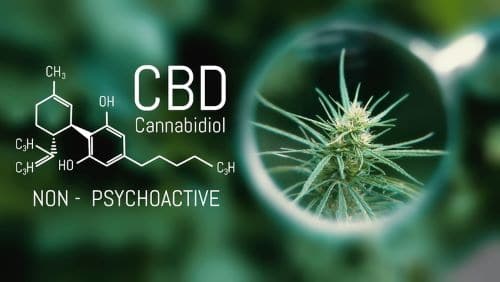CBD is an effective natural remedy for a wide range of health conditions…but it comes with a catch.
A new FDA report shows that not all CBD is created equal.
Fewer than half of CBD products contain the amount of the cannabidiol shown on the label.
Out of 102 products tested, just 45% had anything close to the amount of CBD indicated on the label.[1]
The report backs up previous research.
The watchdog group LegitScript.com tested 30 CBD products. The labels on 20 of them were significantly off on the amount of CBD they contained.[2]
And a 2017 study at University of Pennsylvania’s Perelman School of Medicine found that 70% of CBD products were mislabeled. They either had far less or far more CBD than was listed on the label.[3]
Professor Marcel Bonn-Miller led the study. “There are no standards for producing, testing, or labeling” CBD products, he notes.
CBD: How to Find Quality
Make sure you choose carefully when buying a CBD supplement.
Some CBD products have been found to contain unlabeled THC. Unlike CBD, THC is a psychoactive compound in cannabis. It makes you high. Products with THC can also cause you to fail a drug test.
The FDA study cited above found that nearly half the products they tested contained unlabeled THC.
CBD derived from hemp should contain less than 0.3% THC by volume. This is not enough to show up on a drug test or make you high.[4]
Professor Bonn-Miller says there are many quality, accurately labeled CBD products. But you have to know how to identify them.
Make Sure Your CBD has These 4 Things
Whole-plant extracts. CBD products derived from whole-hemp plants instead of parts of the plant contain natural terpenes. These are beneficial antioxidant compounds. Look for the words “full spectrum,” “whole hemp,” or similar wording on the label.
CBD that is not derived from the whole plant may be labeled “CBD isolate.” CBD isolates are generally cheaper to produce than whole-hemp CBD.[5]
Hemp extract. You want to make sure your CBD comes from hemp, not marijuana. Hemp CBD is legal in all states. And it won’t make you high or fail a drug test.
Made in the USA. Heavy metals and other contaminants have been found in some hemp grown in China or Eastern Europe.[6]
A CBS News investigation looked at 240 CBD products. It’s analysis showed that 70% were “highly contaminated with heavy metals like lead and arsenic, herbicides like glyphosate, and a host of other contaminants including pesticides.”[7]
Jason Cranford is an American cannabis farmer. He explained that overseas countries “use hemp to do cover crops. They use it to purposely suck out the pesticides and heavy metals on soil there so they can plant food crops next.”
Organic products. They won’t contain pesticide residues or other potentially harmful agrichemicals.
Most importantly, you should buy CBD from a company that you trust.
Editor’s Note: How can CBD improve your health? You won’t get straight answers from the mainstream media… Get Independent Healing’s exclusive Cannabis Cure Protocol. It tells you which conditions CBD can effectively treat, and which ones it can’t.
Related Articles
CBD Helps Drug Addicts Quit, Study Finds
CBD Is a Powerful Antibiotic, Study Finds
Like this Article? Forward this article here or Share on Facebook.
[1]https://www.medicalnewstoday.com/articles/fda-report-evaluates-cbd-product-labeling-accuracy
[2]https://norml.org/news/2019/11/14/report-potency-of-cbd-products-sold-online-often-deviates-from-what-is-advertised/
[3]https://www.pennmedicine.org/news/news-releases/2017/november/penn-study-shows-nearly-70-percent-of-cannabidiol-extracts-sold-online-are-mislabeled
[4]https://medterracbd.com/news-what-you-should-know-when.asp
[5]https://www.fundacion-canna.es/en/full-spectrum-cannabis-extracts-vs-cbd-isolate
[6]https://www.washingtonpost.com/national/health-science/is-the-hype-about-cbd-or-cannabidiol-real/2019/01/04/bb824280-ed09-11e8-96d4-0d23f2aaad09_story.html?utm_term=.b685cdff041b
[7]https://cbsaustin.com/news/nation-world/the-risk-of-contaminants-and-false-labeling-in-the-exploding-cbd-industry

